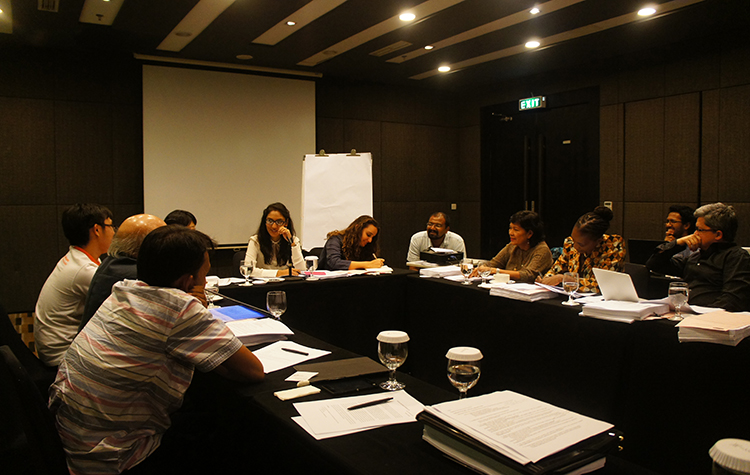The Asian Civil Society Dialogue on Diplomacy and Human Rights will take place on 23-24 August 2015. It will be a continuation of discussions started during the Workshop on Human Rights and Diplomacy in Asia organized by FORUM-ASIA in October 2014 in Jakarta.
In the last few decades, following the end of the Cold War, Asian states have begun to play an increasingly important role internationally in terms of their influence on international affairs. This rise in importance is synonymous with an increased emphasis on internal and external policies related to trade and commerce. In turn this has been followed by rapid levels of development related activities and active Asian involvement in international trade negotiations and development related discussions.
This enthusiasm however is absent when it comes to human rights. The level of interest on this topic remains low among states in the region and Asian states are often poor advocates for human rights issues and situations at the international level. Foreign polices of Asian states often take a negative and suspicious view of human rights. Foreign policy makers of states in the region find it easier to digest liberalised trade regimes, investment regulations and special economic zones for overseas investors or fiscal reform than human right violations or legal reform which are singled out and subjected to outdated notions of sovereignty and the foreign hand.
An additional dimension to this comes from the fact that foreign policy making in Asian states is a secretive process that does not include the public. Foreign Ministries often act in secrecy. At the same time, there is very little civil society interest domestically within Asian states. Foreign policy is public policy and should be subject to the same level of transparency as other elements of public policy. Public consultation should be a part of this process.
The dialogue will be a one-and- a-half daylong meeting and bring together key human right groups in Asia. It will open with a half day meeting on Mongolia’s Candidacy to the UN Human Rights Council and subsequently will see a full day discussion on Asia states’ diplomacy on human rights and civil society strategies at various international platforms where human rights are discussed.
The objectives of the meeting are to:
- Discuss Mongolia’s candidacy for the UN Human Rights Council and the role of civil society in Mongolia’s election to the UN Human Rights Council;
- Analyse foreign policy positions of Asian states on human rights issues and situations; and
- Jointly strategize on civil society advocacy related human rights and diplomacy.
The dialogue in Ulaanbaatar hopes to help formulate joint civil society strategies to make Asian diplomacy more constructive on human rights and to make Asian foreign policy making open, transparent and participatory.
On the 24th August a parallel media briefing will be organized, which will also focus on the candidacy of Mongolia for the UN Human Rights Council.




